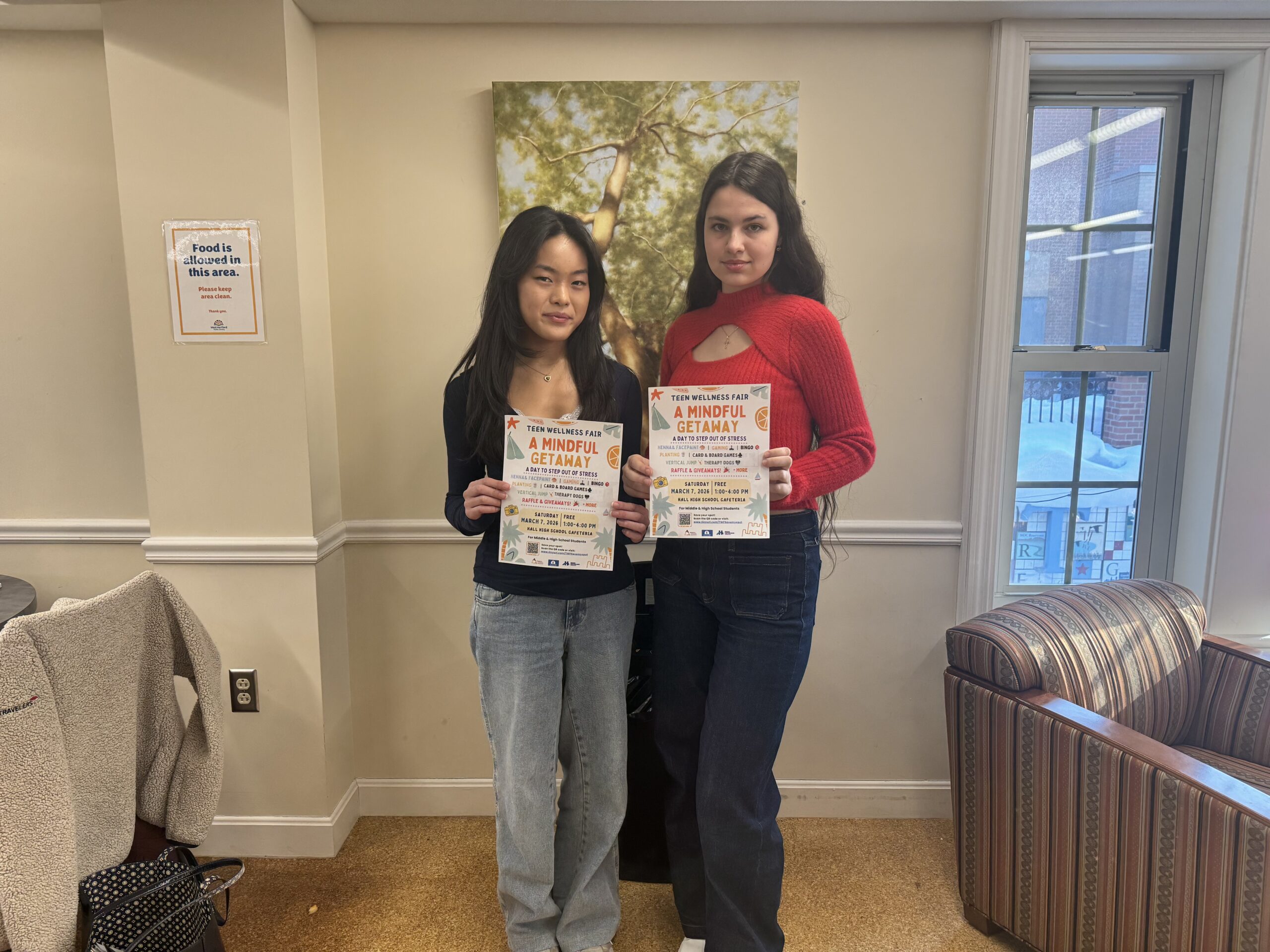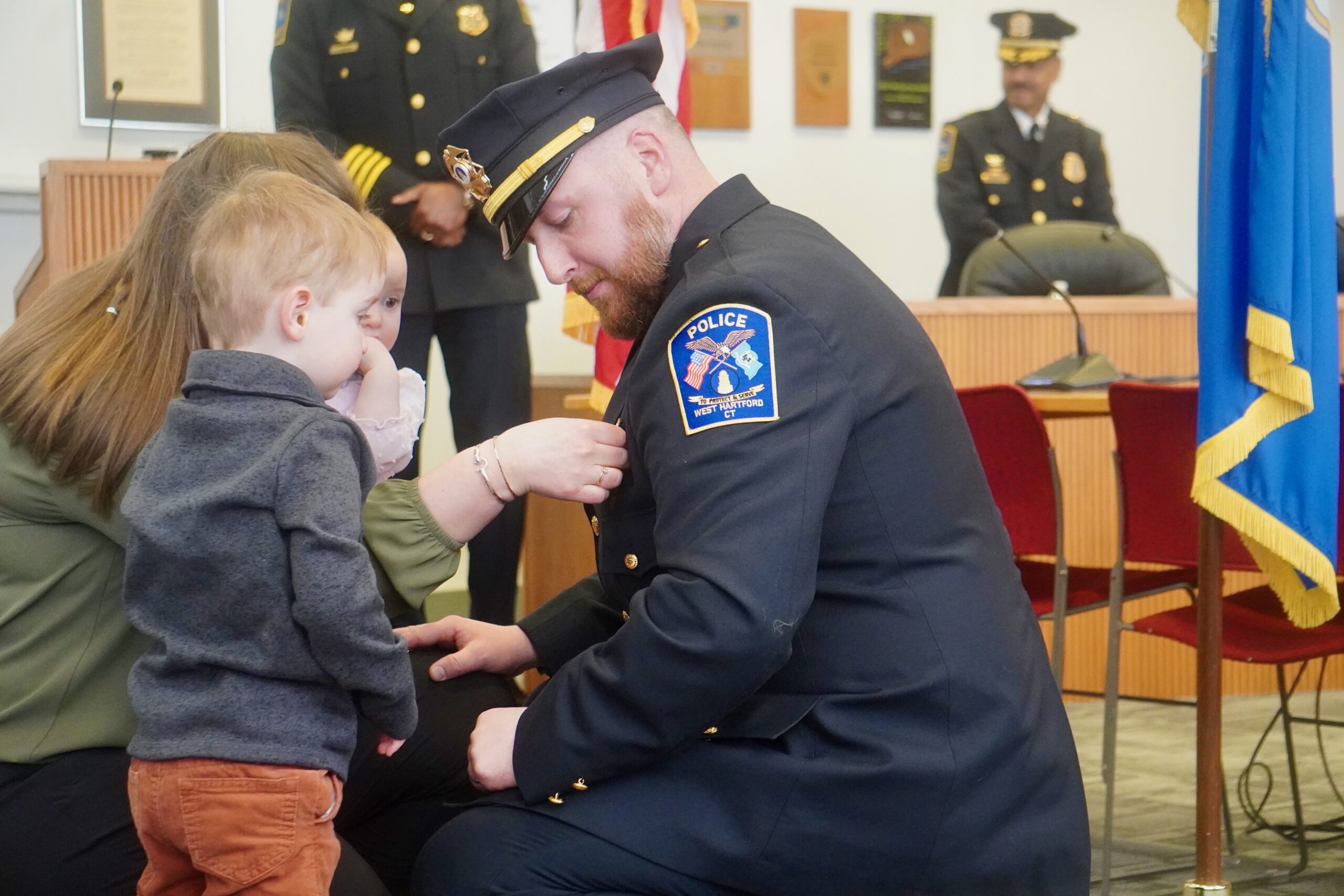From the West Hartford Archives: Charles E. Lord House, New Britain Avenue in Elmwood

Audio By Carbonatix
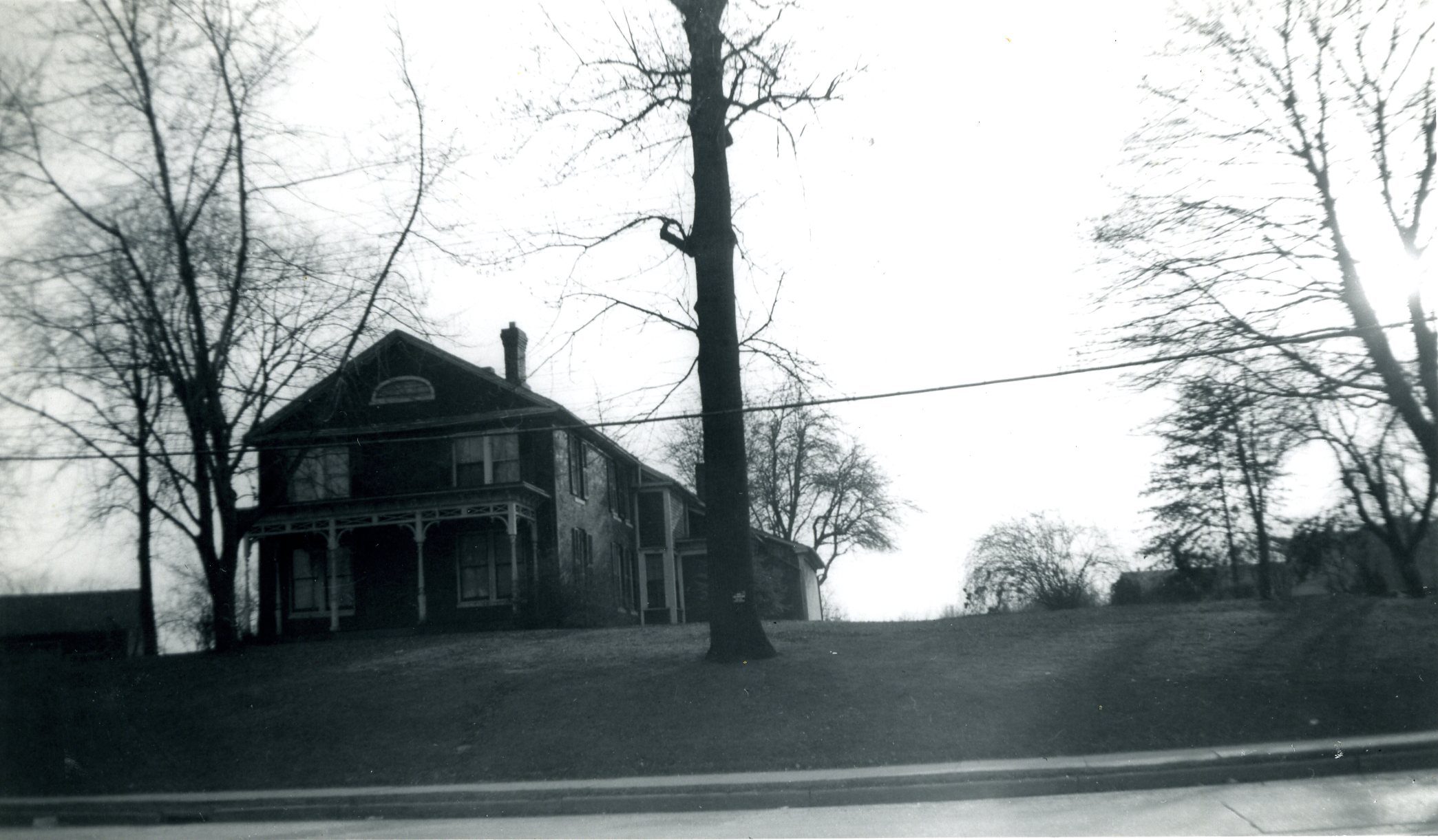
Charles E. Lord House. Photo courtesy of Noah Webster House & West Hartford Historical Society
Historian Jeff Murray takes a look into West Hartford’s past to uncover some surprising information, stir up some memories, or reflect on how much life has changed – or hasn’t changed at all. Enjoy this week’s ‘From West Hartford’s Archives’ …
By Jeff Murray
On Feb. 1, 1955, ground was broken for the new Puritan Furniture factory and showroom on New Britain Avenue. Charles Lord, a longtime Elmwood influence, had owned and occupied a brick house from the 1800s on this site for nearly 50 years before selling it to the firm. The company then demolished it to make way for the plant.
This brick house was first owned by the Cadwell family – Orson Cadwell had managed the Elmwood pottery in the early 1800s. Later, it was the home of Charles E. Kellogg, an inventor and manufacturer active since the 1870s. In the fall of 1880, just two weeks before the presidential election between James Garfield and Winfield Scott Hancock, Republicans from Elmwood and beyond numbering 60 in total held a rally at Kellogg’s house on New Britain Avenue in favor of Garfield and his vice presidential running mate Chester Arthur. They unfurled a flag in front of the house and gathered for political speeches on the lawn.
Garfield and Arthur’s clear Republican victory in November 1880, typical of this era, was sure to be satisfying for those who rallied on the lawn, but Garfield was shot in Washington, D.C. mere months into his term and was succeeded by his vice president Chester Arthur. Kellogg’s house became the site of another rally at the next election in 1884, featuring another flag raising. This time, their preferred Republican candidate of James Blaine did not work out in their favor and Grover Cleveland became the first Democratic president in more than 30 years.
Besides his political advocacy, Kellogg was a premier salesman for his most popular invention, a branded chimney lamp. Business was booming in Elmwood. Kellogg was getting clients every week for his chimney lamps and the Goodwin Pottery factory next door was churning out products from their new factory (they would later buy land from Kellogg for an expansion).
The railroad station agent, Jesse Park, resigned his position to join Kellogg as assistant salesman in 1881. Kellogg was also prominent in the Elmwood Chapel Association, being elected president just five years after the church was built at the corner of New Britain Avenue and Grove Street. He helped grow attendance and organize fundraisers for the organization. He was also involved with the Elmwood school that was built on land to the west of his house in 1888 at the corner of what is now Woodlawn Street, the current site of the Faxon branch library.
In 1906, after years of selling off adjacent land, Kellogg sold the brick house to Charles E. Lord, a relative newcomer to the area. Lord was employed by the Hartford Brick Company on New Park Avenue in 1895 soon after it was organized, coming from Hartford’s Market Street. Brickyards were not only powerhouses in this district, the companies that ran them also held plenty of influence.
In 1895, the Hartford Brick Company bought out the local grocery store and placed Lord in charge of the store, which was then at the corner of New Park Avenue and New Britain Avenue. A week into 1899, Lord bought out the store himself from the brick company and conducted the business in his own name. Like Charles E. Kellogg, the Lords were heavily involved in the affairs of Elmwood – he served as a constable, was on the building committee for the new Elmwood School in 1900 down the road, and his wife Ellen hosted the literary club often. In 1905, he was elected as assistant secretary of the Goodwin Pottery Company.
It was common for small-town residents to be involved in the affairs of the neighborhood, but the Lords were active in it all very quickly. He was soon nominated and confirmed as the postmaster in Elmwood, operating out of the store he ran. It is therefore no surprise that they bought the Kellogg house, a landmark in and of itself, at this time.
In February 1912, Lord spoke to the Business Men’s Association (the precursor to the Chamber of Commerce) about the rapid growth of the Elmwood section, spurred by its manufacturing advantages. At this time, several factories were being built along New Britain Avenue and side streets, like Bennett Metal, Abbott Ball, and New Departure. In one year, 20 houses had been built, Elmwood saw increased railroad traffic (both passenger and freight), and residents were anxious to keep it going.
During World War I, both Charles and Ellen were active in the Red Cross, as well as local societies for the war effort. They were also afflicted by the famous influenza in February 1919 (although they both survived). Charles was elected chairman of the South Fire District in 1919 at a time when the town was reorganizing itself to more efficiently provide services. Their contributions to West Hartford, particularly the south end, can’t be easily summarized in just this article.
There were also plenty of family connections to go around. Charles Lord had married Ellen Shaw, the granddaughter of Orson Cadwell (the original owner of the brick house he would buy in 1906). They had two children – Edith and Charles Jr., who unfortunately died at the age of 15.
Lord’s daughter, Edith, married the son of Thomas C. Brown, who took over the grocery store Lord had managed.
After he sold the house to Puritan Furniture in 1953, Lord moved to Newington to live with his daughter and son-in-law where he died in 1958 at the age of 91. His wife Ellen had passed two decades before. It was the end of an era.
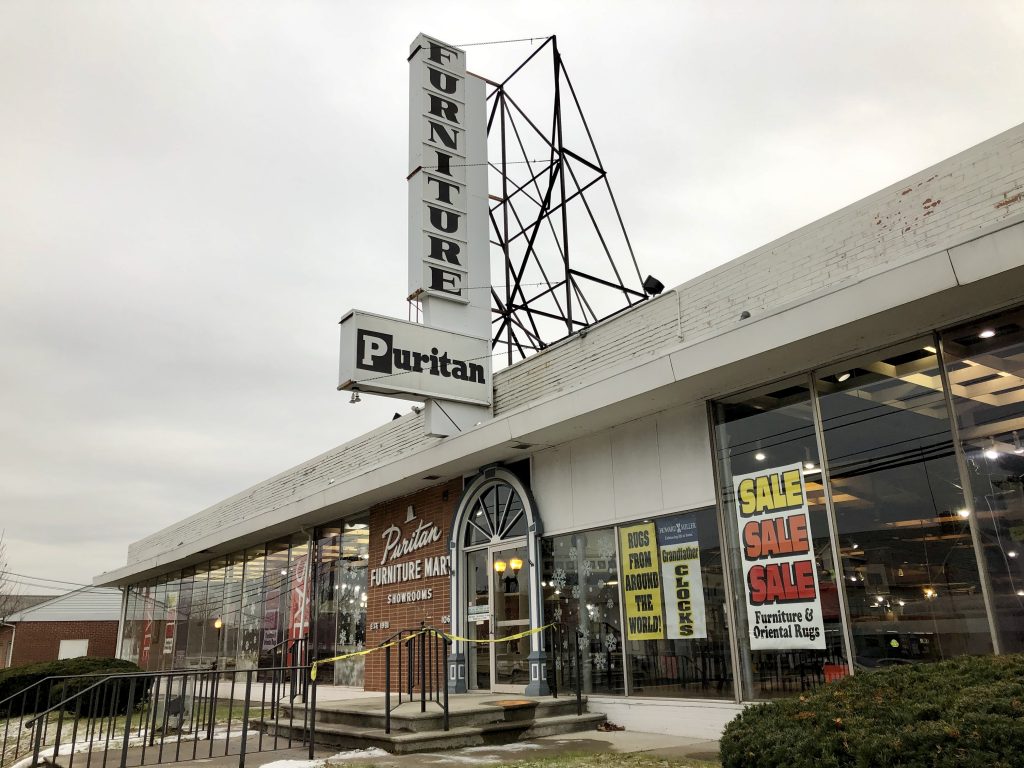
Puritan Furniture, at 1061 New Britain Ave. closed in 2020. Photo credit: Ronni Newton (we-ha.com file photo)
Puritan Furniture now became the landmark. Started as Superior Upholstery in the early 1930s, it was originally at 1041 New Britain Avenue, right across from New Park Avenue. At the age of 18, William Singer, who had entered the business as an upholster, bought the company during the Great Depression. He noted that they started with five employees, but by 1938, they had built a large addition and a client base. The retail furniture store, Puritan Furniture, opened in 1942 and quickly expanded until it became necessary to buy space for a new warehouse and factory outlet – 1061 New Britain Avenue, the Lord house, was the perfect site nearby.
This landmark in 1950s Elmwood continued for six decades here until it closed in 2020. The Ashley HomeStore Outlet that came after has since been liquidated and the complex of buildings will be torn down to make way for a transit-oriented mixed-use development that includes housing and retail in 2024. It’s hard to believe that this lot was the site of an old brick house that hosted political rallies and successive generations of Elmwood entrepreneurs, manufacturers, and civic titans.
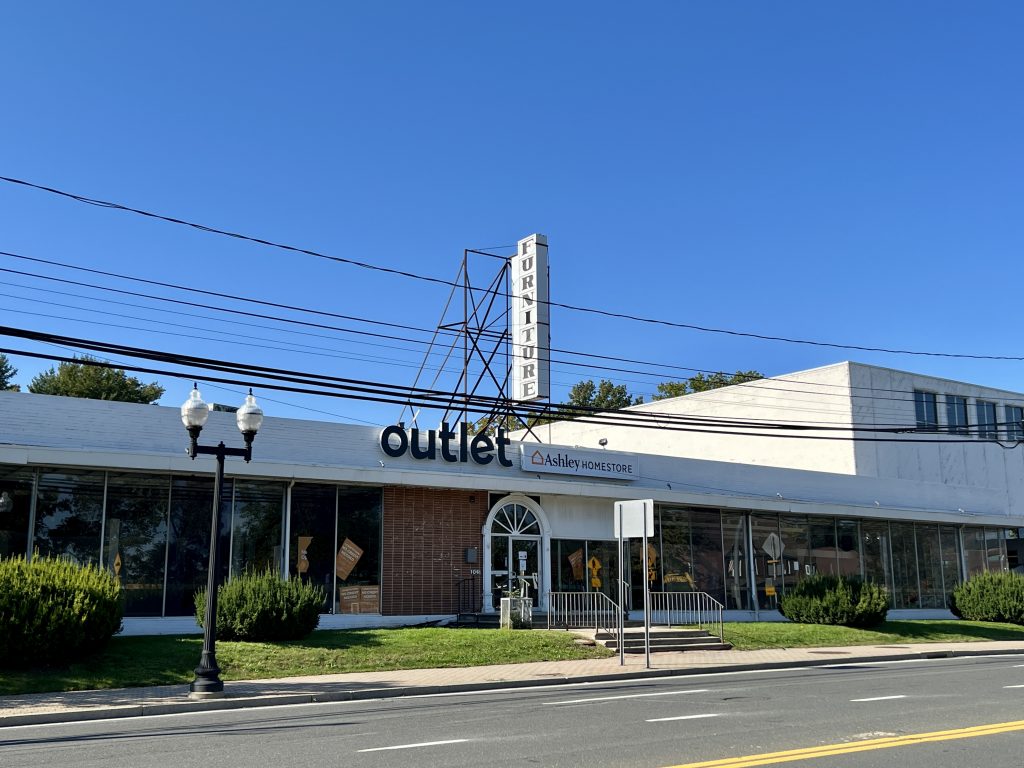
The Ashley HomeStore Outlet has been liquidated and the existing buildings will be demolished to make way for a mixed-use Transit-Oriented Development. Photo credit: Ronni Newton (we-ha.com file photo)
Jeff Murray was born and raised in West Hartford and has been involved with the Noah Webster House & West Hartford Historical Society since 2011 when he was a high school student and won the Meyer Prize for his essay on local history. Jeff routinely volunteers as local history researcher uncovering information for numerous museum programs such as the West Hartford House Tour and West Hartford Hauntings. Jeff works as a data analyst at Pratt & Whitney.
Like what you see here? Click here to subscribe to We-Ha’s newsletter so you’ll always be in the know about what’s happening in West Hartford! Click the blue button below to become a supporter of We-Ha.com and our efforts to continue producing quality journalism.


